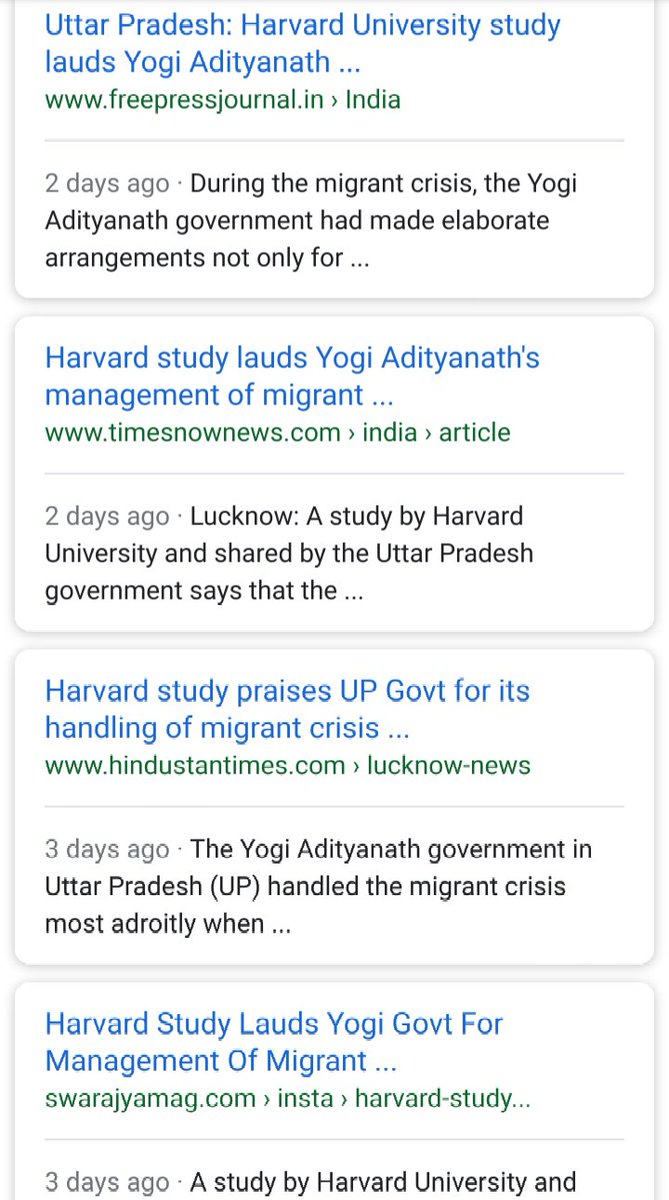
A 'Harvard study' says that "Yogi's UP" was "heaven on earth" for migrants.
Over d last few days, we have been seeing such headlines all over Indian media.
But there's a catch: None of these reports mentions the authors' names, the study's title, & where to find d actual study

Over d last few days, we have been seeing such headlines all over Indian media.
But there's a catch: None of these reports mentions the authors' names, the study's title, & where to find d actual study


Harvard Univ already has a lot of baggage, recently in terms of many graduates workin for d Trump admin.. I m sure they do not want to extend this baggage to hateful, divisive, violent regimes elsewher. The content of d news reports makes it clear that if such a Harvard study..
.. exists, it wasn't primarily done for academic reasons.
Or maybe it was, in which case it would be really great if @Harvard or @HarvardChanSPH make sure that the study is made publicly available so that other experts can assess how valid its observations & conclusions are.
Or maybe it was, in which case it would be really great if @Harvard or @HarvardChanSPH make sure that the study is made publicly available so that other experts can assess how valid its observations & conclusions are.
It is also imp to point out that all the news reports, esp @htTweets (who shud know better), skip any identifying info regarding this mysterious study. Hope at least the journalists got a copy of it.. Or were they simply taking the "heavenly" UP admin's words to be the truth?
All of this is assuming such a study exists. Which I believ cud be the case, considerin the number of NRIs & desi Ivy Leaguers who have been cheerleaders of both Trumpian politics in the US and Sanghi politics in India.
But in case no such study exists, all apologies to Harvard.
But in case no such study exists, all apologies to Harvard.
• • •
Missing some Tweet in this thread? You can try to
force a refresh



